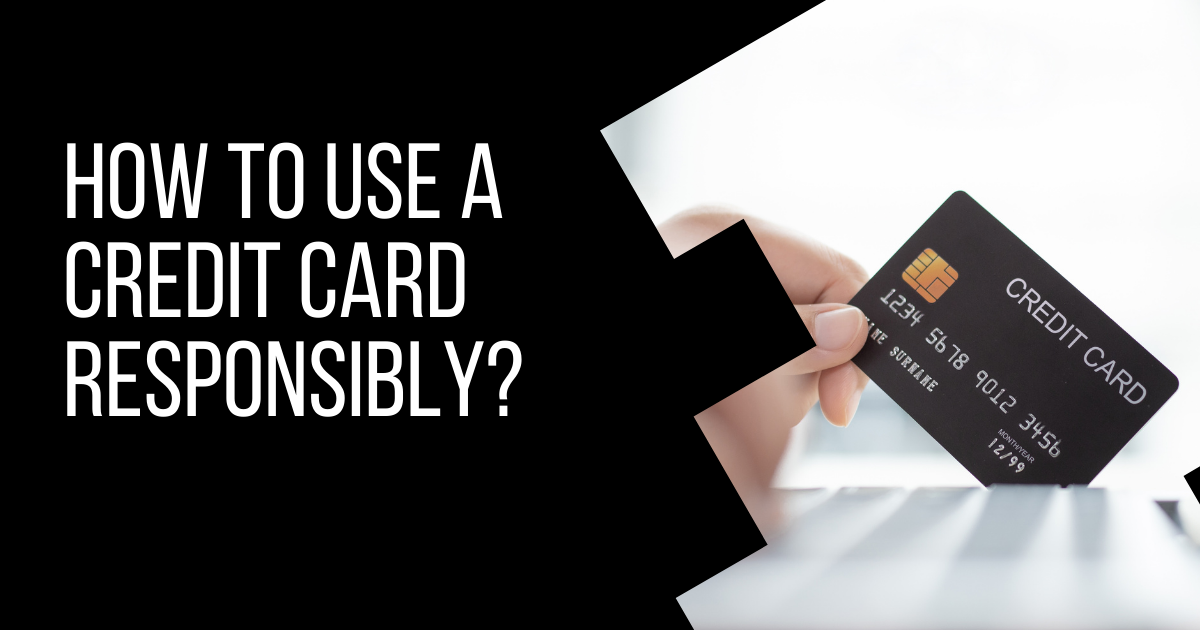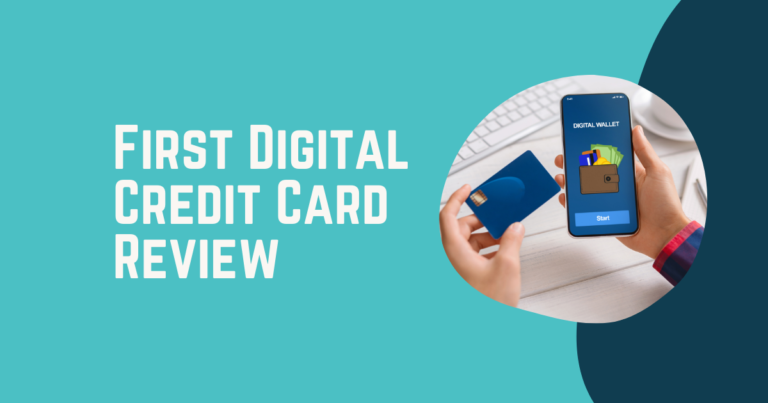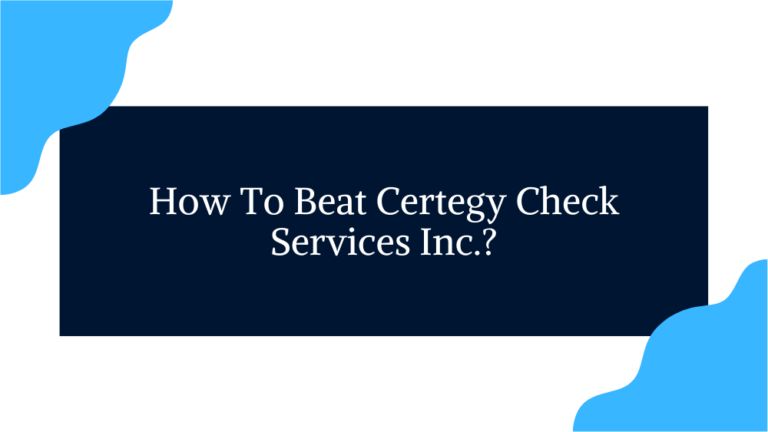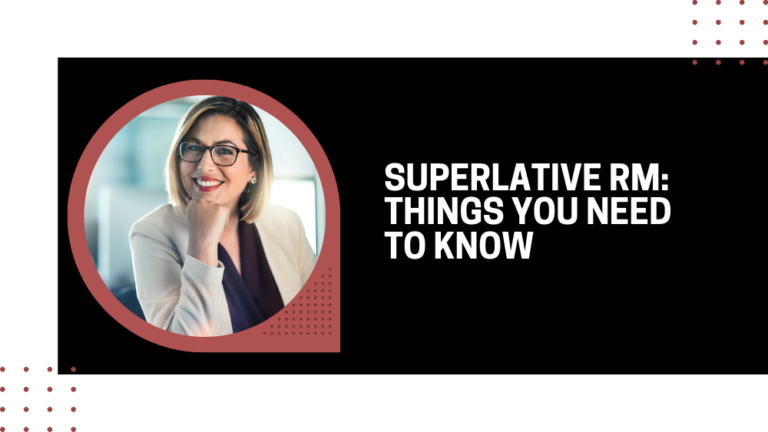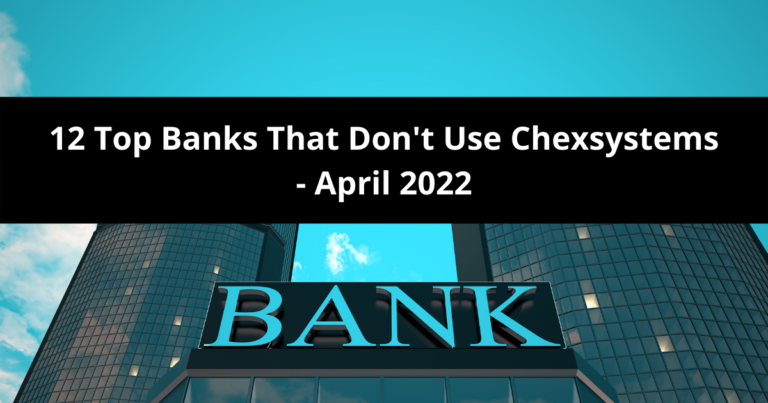How To Use A Credit Card Responsibly?
Introduction
Learning and understanding how to use a credit card responsibly might take time. But following the list of suggestions can help you prevent falling into the trap of debt while building a credit card history at the same time.
Tips On How To Responsibly Use A Credit Card ?
Read on to learn how to use a credit card responsibly:
Understand the credit card agreement and terms:
After opening your new credit card amount, go through the credit card agreement and terms. After issuing your card, it is essential to know the agreement’s details between the issuer and you. Therefore, it is crucial to go through the agreement and collect information like due dates, interest rates, fees, and more. In the agreement, you will find the details about payment dates, fees, and borrowing limits.
Always start slowly:
Avoiding spending right after getting the credit card is not good. Starting slowly is an excellent idea when you are new to a credit card. It is important to have patience while understanding the way it works and how you can use it without falling into debt.
Set a budget and stick to it:
It is crucial to understand that creating a budget and sticking to it right from the start can help you avoid getting into debt.
Pay your credit card bill on time every month:
The most important thing you should be concerned about is paying your bills on time every month. If you miss payments, you can lead yourself into debt, which at some point might get so large that you will need to enroll in a debt consolidation program to clear it off. Therefore, keeping your finances in good shape by paying timely every month can help you keep away from this scenario. In addition, you will have some credit card companies offering mobile apps enabling features that help manage your finances. For example, it helps you set reminders, or you can schedule automated payments every month.
Pay more than the minimum payment each month:
You will come across cardholders asking you to use credit cards wisely. Precisely they are recommending you pay more than the card’s minimum amount every month. Paying the minimum or more than the minimum bill helps you avoid penalties and fees. If not, you will be charged with interest the next month while paying the bill. Furthermore, only paying the minimum amount creates a balance, and you will need to pay an extra fee on that balance.
Only spend what you can afford to pay off every month:
It is important to avoid any purchases or luxuries that you cannot afford. The necessary purchases, such as internet and cable bills, cell phone bills, books for colleges, and other essential expenses you know you can cover in the next month, should only be purchased. Consider buying the things you need and avoid following what you want. Besides, it is necessary to know that excessive spending can lead you to more payments than you think you can afford.
Do the math before you transfer a balance or take out a loan:
Before taking out a loan for any purchases, just calculate if you can pay off the item in the next month. If not, avoid taking it; otherwise, you might fall more into the trap of debt.
Keep your credit utilization low:
Credit utilization means the percentage of the credit limit. This factor determines your credit score. A higher utilization rate indicates that you have trouble paying your bills. Therefore, it is better to keep it to lower credit utilization. Besides, lower utilization is good for credit scores.
Beware of fees and grace periods:
It is good if you can keep yourself away from grace periods and fees. Grace periods are the opportunities within which you can pay off the balance interest-free. Therefore, you can keep away from occurring interests if you pay off the debt during the period considered a grace period.
Avoid opening several credit card accounts in a short period:
Opening several credit card accounts within a short time can trigger hard inquiries that can impact your credit score severely. Besides, you will have difficulties managing more than the due date for the payments. Furthermore, the average length of the credit history will decrease.
Leave old credit cards open, even if you don’t use them:
Closing the old credit cards can impact your credit scores. The duration of the credit makes up your credit history. Closing the oldest credit account can decrease the age of the accounts.
Check your statement every month and keep an eye out for fraud and errors:
Having a credit card means having constant risks. You might be encountered fraud activities on your card. Therefore, it is good to monitor the statements online or on paper.
Common Credit Card Mistakes That You Must Avoid
Paying interest:
You pay interest when you borrow money through a credit card. Paying in full every month can help you avoid interest besides racking up interest in the future. It’s effortless to run up a credit card balance and get stuck paying high interest on the debt. But you can prevent it by paying in full each month.
Not reading the fine print:
Credit card terms change frequently. Go through your credit card agreement carefully to avoid getting slapped with fees, over-limit charges, and other surprises. Furthermore, there might be hidden credit card terms and conditions or charges. For example, you might come to know that cardholders were informed that their card is free while they are charged an annual fee after a year. If they complained about it, it was informed that there is a minimum spending requirement that will waive off their annual fee. Besides, you might also have fees like late payment fees, annual fees, interest, etc., you might have after using the card.
Not paying your bill on time:
Consumer Financial Protection Bureau (CFPB) recommends making payments on time every month. Because payment history determines your credit history and late payments and increases interest rates. Late payments can encourage late fees, penalty interest rates, and damage your credit score.
Ignoring your credit limit:
When you have been approved for a credit card, you will be assigned a credit limit by the issuer. You can use the credit limit, but it will hurt your credit score. Experts advise cardholders not to use more than 30% of the total credit limit. Carrying a balance exceeding your credit limit can charge you a fee of around $25 each month or more. It is also known as an over-limit fee.
Closing unused accounts:
By closing unnecessary accounts, you can reduce confusion, but it could negatively affect your credit score by lowering your total available credit. The length of time you use your credit card determines or makes up your credit score. Closing a credit card abruptly can affect the credit history. It is not recommended not to close your oldest credit card, which can cut the average age of the credit.
Not using rewards:
Although many cards offer rewards for purchases, many people never actually redeem their points or miles for anything. Depending on your spending habits, you might be able to redeem points for travel, merchandise items, and gift cards from restaurants and retailers. It helps you pay entirely from the credit card without burning a hole in your pocket.
Maxing out on your Credit Cards:
Using the credit card to the maximum limit will increase the utilization rate, lowering your credit score. If you think you are getting closer to the monthly limit, you can call the company and ask them to increase the credit limit.
Not Paying Your Balance in Full:
You can pay the minimum due every month, but it is recommended to pay more than the minimum amount or in full. If you do not pay in full, you might have the chance to fall into debt, and you might rack up interests. Furthermore, paying the minimum amount can take years to pay off the debt.
How Credit Card Companies Make Money Off You?
You have several perks of having credit cards that can build your credit history, credit score, cash perks, travel perks, etc. But you get these perks at a cost. Following are the ways credit card companies make money off you. Understanding how the system works can help you know how you pay for goods and services and how to use credit cards responsibly.
6 Ways How Credit Card Companies Make Money Off You
Interest charges:
It is no surprise that credit card companies earn revenue from the consumers paying interest charges. Credit card interests are generally high, and paying the minimum balance every month hardly clears the loan balance. As a result, the debt keeps lingering, generating more profits. Therefore, credit card users pay off their debts every month in full. This way, they are not required to pay interest. But this also brings the credit card companies some profits.
Over-limit fees:
You will drop your credit score and face a financial penalty considering exceeding the predetermined credit limit.
Late fees:
Late fees result from late or missed payments. A credit card issuer can earn a fee from your late payment, but it can negatively impact your credit score. You can avoid the circumstance by paying the minimum fee on your card balance.
Cash advance fees:
Withdrawing cash from an ATM using a credit card comes with a minimum charge. The charge can range between two and five percent.
Annual (membership) fees:
Annual fees are charges generally on reward cards and credit cards for bad credit. Some cards require no annual fees. But credit cards with annual fees come with top-tier rewards, travel points, or cash backs. The fee can range from $25 to $500 or more.
Foreign transaction fees:
Foreign transaction fees apply to the purchases made outside the United States, generally when on vacation.
Benefits Of Using A Credit Card
Following are the benefits you enjoy when you know how to use a credit card responsibly:
1. Convenience: It can be more convenient to use a credit card than using other paying methods. You get several benefits all at once. For example, you can keep track of the spending you do each month as it sends you a statement every month about how much, when, and where you spend. In addition, some credit cards offer yearly statements summarizing your purchases throughout the year. Besides, you get a convenient payment method while purchasing anything online with a credit card. Furthermore, you can create a credit score that might help you receive a loan in the future.
2. Build your credit score: Using your credit card responsibly can help you build your credit score since credit card companies report all your activity to the credit bureaus. In addition, credit cards can help you make a credit history through which you can get qualified for unsecured cards or larger loans in the future.
3. Avoid overspending: Even though a credit card seems like a pool of money, it can stop you from overspending. It is because you can track your purchases by the monthly statements provided by the credit card company. This way, you can resist the urge to overspend as you will try ways to purchase only things you can easily afford to pay for. Besides, there is always a risk of getting into large debt if used for overspending.
4. Pay off debt faster: It is known paying the minimum amount every month might be good but can also lend you to other issues. Considering the consequences, a person with a credit card will try to clear the expenses on time with more than the minimum or in full every month. Doing this helps the individual keep away from falling more into debt besides controlling the overspending habits on luxury goods that cannot be afforded.
5. Make your money work for you: People generally use credit cards to make purchases with credit card money. Therefore, credit cards have several benefits, such as building credit history and credit scores. The money you receive through a credit card can be used to clear your debts, purchase essential goods and earn rewards. By using the credit card responsibly, you can further qualify for larger loans in the future. This way, you can benefit from using a credit card.
6. Payment protection and dispute resolution: Payment protection is an insurance plan provided by the card issuer. You might need to pay a monthly fee if you choose it. However, it helps to pause your card’s fess when you are in a serious issue. In addition, payment protection helps to keep your account in good standing as the credit card issuer continues reporting to the credit reporting agencies that your card is in good standing. Furthermore, you have dispute resolution procedures that help to correct any incorrect information reported in your credit card report.
Conclusion
Thus, it is crucial to be aware of using a credit card responsibly because you can enjoy using credit cards when you use responsibly. While it can be beneficial to use a credit card, you might accumulate interest or potentially limit the benefits of a credit card if you do not plan on understanding the process of payment.
